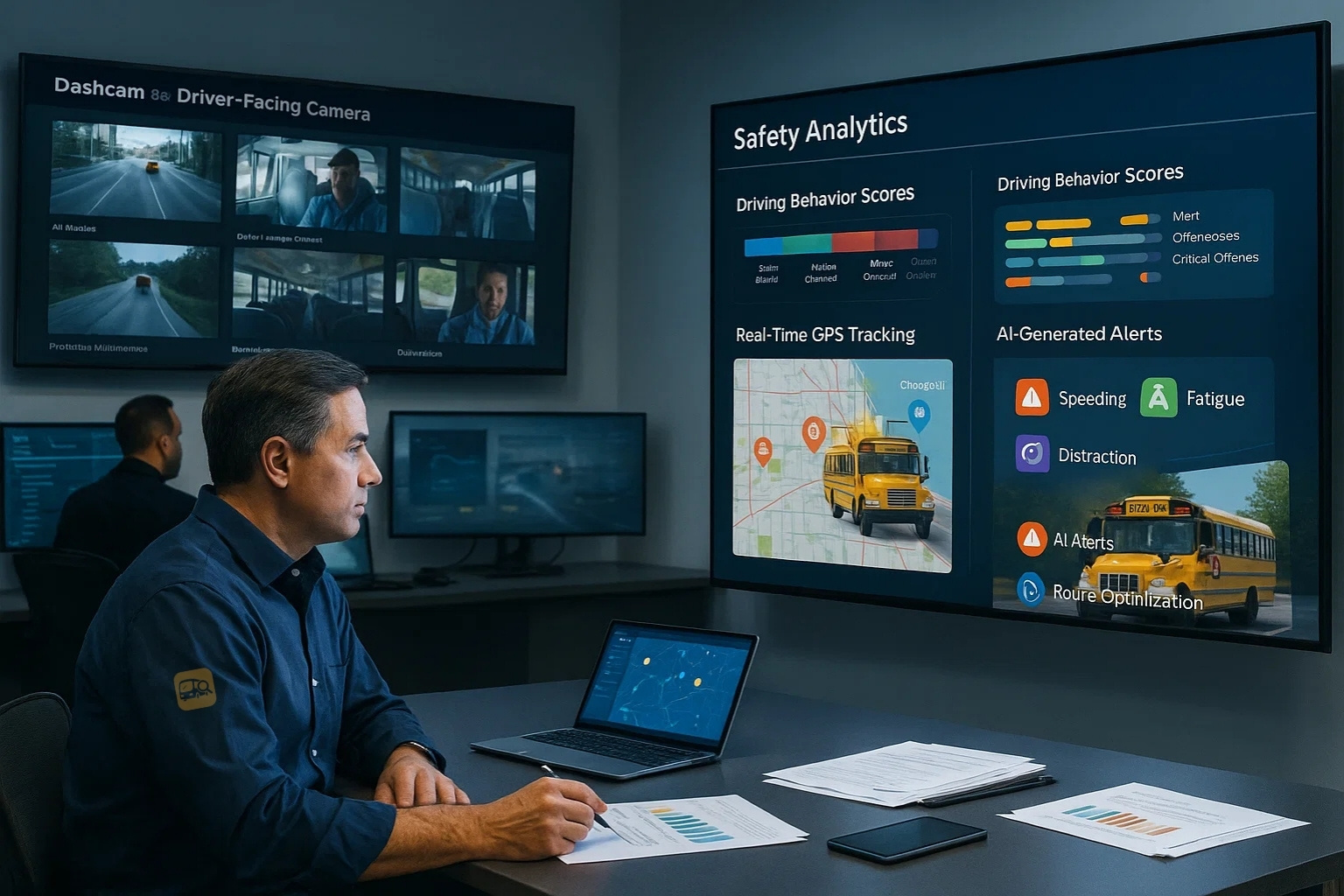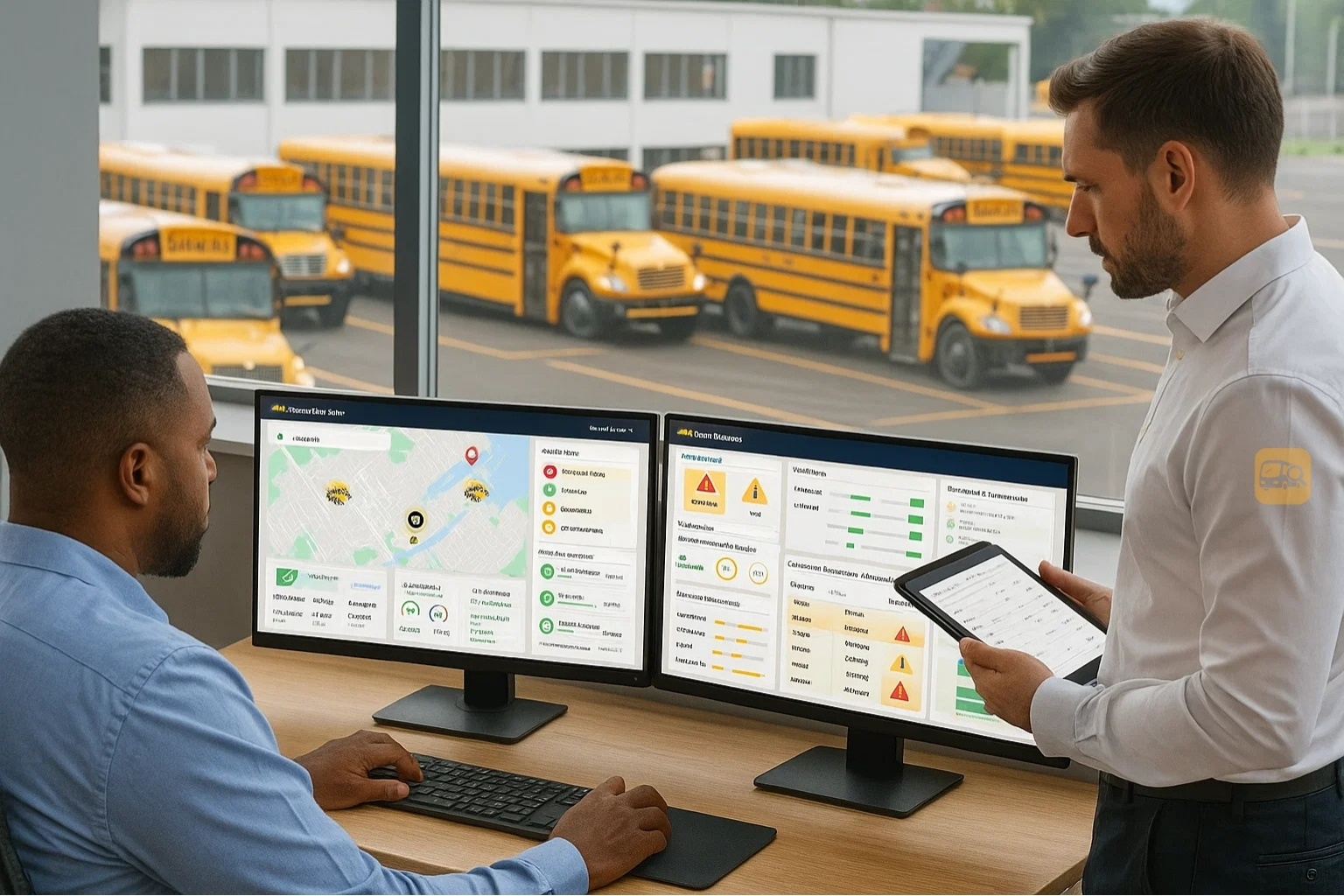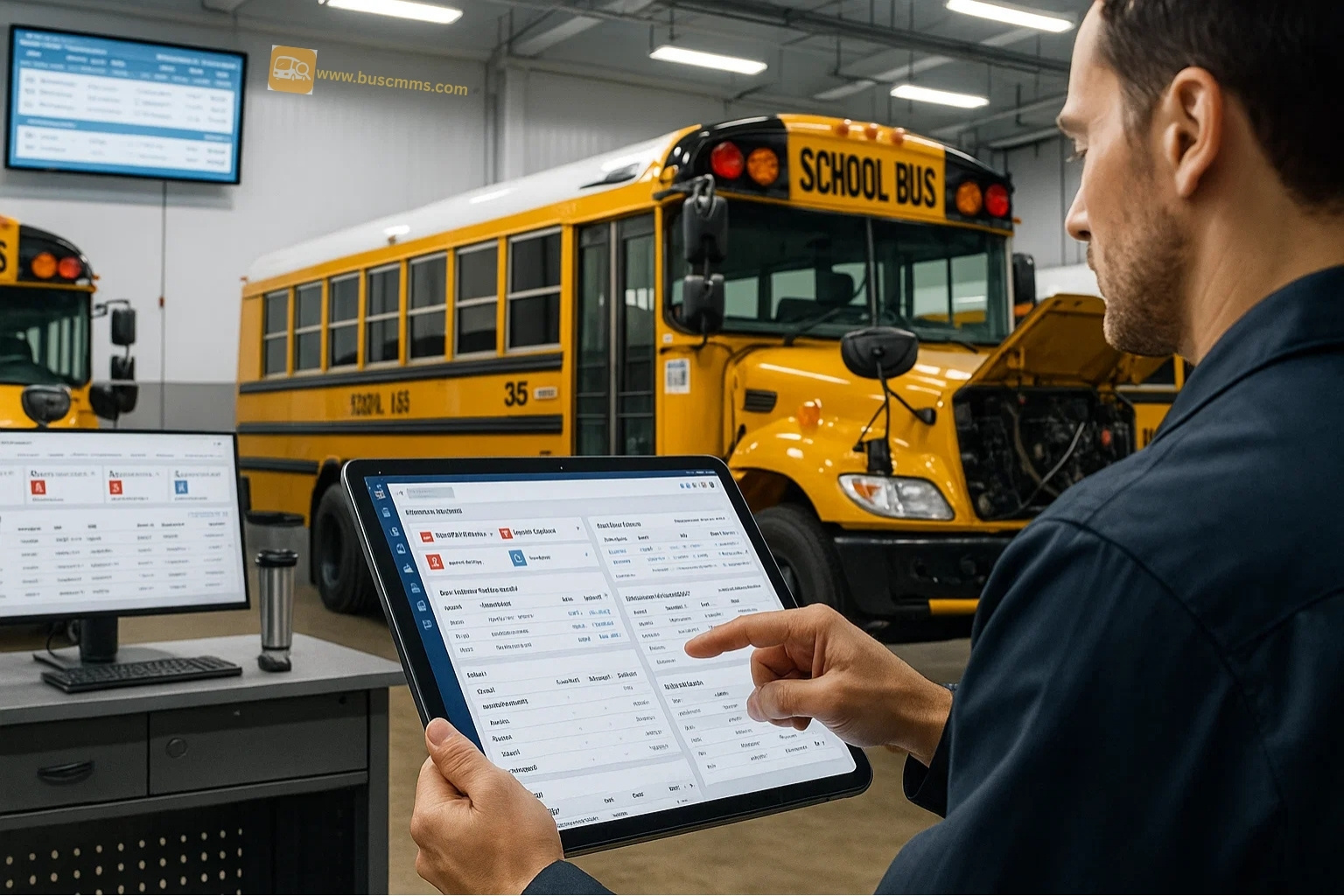In today's competitive transportation landscape, US manufacturing professionals are discovering that efficient bus scheduling software is no longer a luxury—it's a necessity. Whether you're managing employee shuttle services, coordinating logistics operations, or overseeing fleet maintenance schedules, the right scheduling software can transform your operational efficiency and bottom line.
Modern bus scheduling software goes beyond simple route planning. It integrates comprehensive fleet management capabilities, real-time tracking, predictive maintenance scheduling, and compliance monitoring into a single, powerful platform. For manufacturing professionals who understand the importance of operational precision, these tools represent a significant opportunity to optimize transportation operations while reducing costs and improving safety standards.
Advanced Fleet Scheduling and Route Optimization
The foundation of effective bus scheduling software lies in its ability to create optimal routes that balance efficiency with reliability. Modern platforms use sophisticated algorithms that consider traffic patterns, driver availability, vehicle capacity, and maintenance windows to create schedules that maximize fleet utilization while minimizing operational costs.
For manufacturing professionals managing employee transportation or logistics operations, these capabilities translate into measurable improvements in productivity and cost control. Advanced route optimization can reduce fuel costs by 15-25% while improving on-time performance and reducing vehicle wear. The software continuously learns from historical data, weather patterns, and traffic conditions to refine scheduling decisions and adapt to changing operational requirements.
Integration with GPS systems and telematics platforms provides real-time visibility into fleet operations, enabling dynamic schedule adjustments when unexpected delays occur. This level of responsiveness is particularly valuable for manufacturing operations where employee punctuality and logistics timing directly impact production schedules and operational efficiency.
Ready to optimize your fleet scheduling operations with intelligent software solutions? Discover how modern bus scheduling platforms can reduce costs, improve efficiency, and enhance safety for your transportation operations.
Getting StartedBook a Demo
Integrated Maintenance Management and Compliance Tracking
Effective bus scheduling software seamlessly integrates with Computerized Maintenance Management Systems (CMMS) to ensure that maintenance schedules never conflict with operational requirements. This integration is crucial for manufacturing professionals who understand that unplanned downtime can have cascading effects throughout their operations.
The software automatically schedules preventive maintenance during low-demand periods, tracks compliance with federal and state regulations, and maintains detailed service histories for each vehicle. Predictive analytics capabilities can identify potential maintenance issues before they lead to breakdowns, helping transportation managers transition from reactive to proactive maintenance strategies.
Compliance tracking features ensure that all vehicles meet safety standards, driver certifications remain current, and inspection schedules are maintained according to regulatory requirements. For manufacturing companies operating in regulated industries, this comprehensive compliance management reduces audit risks and helps maintain operational certifications.
Real-Time Fleet Monitoring and Driver Safety Management
Modern bus scheduling software provides comprehensive real-time monitoring capabilities that give transportation managers complete visibility into their fleet operations. Advanced GPS tracking systems integrated with the scheduling platform provide live updates on vehicle locations, schedule adherence, and driver performance metrics.
Driver safety management features include fatigue monitoring, speed tracking, harsh braking detection, and route deviation alerts. These capabilities are particularly valuable for manufacturing operations where safety standards are paramount and insurance costs are a significant operational expense. The software can automatically generate safety reports and provide driver coaching recommendations based on performance data.
Integration with mobile applications allows drivers to receive real-time schedule updates, report maintenance issues, and communicate directly with dispatch. This two-way communication improves operational efficiency and helps prevent minor issues from becoming major problems that could disrupt manufacturing operations or employee transportation schedules.
Data Analytics and Performance Optimization
The most advanced bus scheduling software platforms provide comprehensive analytics capabilities that help manufacturing professionals make data-driven decisions about their transportation operations. These systems collect and analyze data from multiple sources including GPS tracking, fuel consumption, maintenance records, and driver performance metrics.
Performance dashboards provide real-time insights into key metrics such as fuel efficiency, on-time performance, maintenance costs, and driver productivity. Historical trend analysis helps identify patterns and opportunities for improvement, while predictive analytics can forecast future maintenance needs and operational requirements.
For manufacturing professionals focused on continuous improvement, these analytics capabilities enable the same data-driven approach to transportation management that they apply to production operations. Regular performance reviews based on concrete data help identify cost-saving opportunities and operational efficiencies that directly impact the bottom line.
Integration Capabilities and Scalability for Growing Operations
Enterprise-grade bus scheduling software is designed to integrate seamlessly with existing business systems including ERP platforms, HR management systems, and financial reporting tools. This integration capability is essential for manufacturing professionals who need transportation operations to work harmoniously with broader business processes.
APIs and data exchange capabilities allow the scheduling software to share information with other systems, eliminating duplicate data entry and ensuring consistency across all operational platforms. Whether integrating with payroll systems for driver hours tracking or connecting with production scheduling systems for employee transportation coordination, modern platforms provide the flexibility needed for complex manufacturing operations.
Scalability features ensure that the software can grow with expanding operations, adding new routes, vehicles, and drivers without requiring complete system overhauls. Cloud-based platforms provide the reliability and accessibility needed for multi-location manufacturing operations while maintaining data security and system performance.
Bus scheduling software represents a critical investment for manufacturing professionals seeking to optimize their transportation operations. By combining advanced route optimization, integrated maintenance management, real-time monitoring, and comprehensive analytics, these platforms deliver measurable improvements in efficiency, safety, and cost control.
The key to success lies in selecting a platform that integrates seamlessly with existing operations while providing the scalability and flexibility needed for long-term growth. Manufacturing professionals who embrace these technologies position themselves to reduce operational costs, improve safety standards, and maintain the operational excellence that drives competitive advantage in today's market.
Frequently Asked Questions
Q: What are the key features to look for in bus scheduling software for manufacturing operations?
A: Essential features include advanced route optimization, real-time GPS tracking, integrated CMMS capabilities, driver safety monitoring, compliance tracking, mobile applications for drivers, and comprehensive analytics dashboards. The software should also offer API integration capabilities for seamless connection with existing business systems.
Q: How does bus scheduling software integrate with maintenance management systems?
A: Modern scheduling software integrates directly with CMMS platforms to automatically coordinate maintenance schedules with operational requirements. The system schedules preventive maintenance during low-demand periods, tracks compliance requirements, maintains service histories, and uses predictive analytics to identify potential issues before they cause breakdowns.
Q: What cost savings can manufacturing companies expect from implementing bus scheduling software?
A: Companies typically see 15-25% reduction in fuel costs through route optimization, 20-30% decrease in maintenance costs through predictive scheduling, improved on-time performance reducing operational disruptions, and lower insurance premiums through enhanced driver safety monitoring. The exact savings depend on fleet size and current operational efficiency.
Q: How does real-time tracking improve fleet operations for manufacturing companies?
A: Real-time tracking provides live vehicle locations, enables dynamic schedule adjustments for unexpected delays, monitors driver performance and safety metrics, allows immediate response to emergencies or breakdowns, and provides accurate arrival times for employees or logistics operations. This visibility helps maintain production schedules and operational continuity.
Q: What should manufacturing professionals consider when selecting bus scheduling software?
A: Key considerations include integration capabilities with existing systems, scalability for future growth, compliance tracking features for regulatory requirements, real-time monitoring and analytics capabilities, mobile accessibility for drivers and managers, data security standards, and vendor support quality. The software should align with operational complexity and long-term business objectives.








